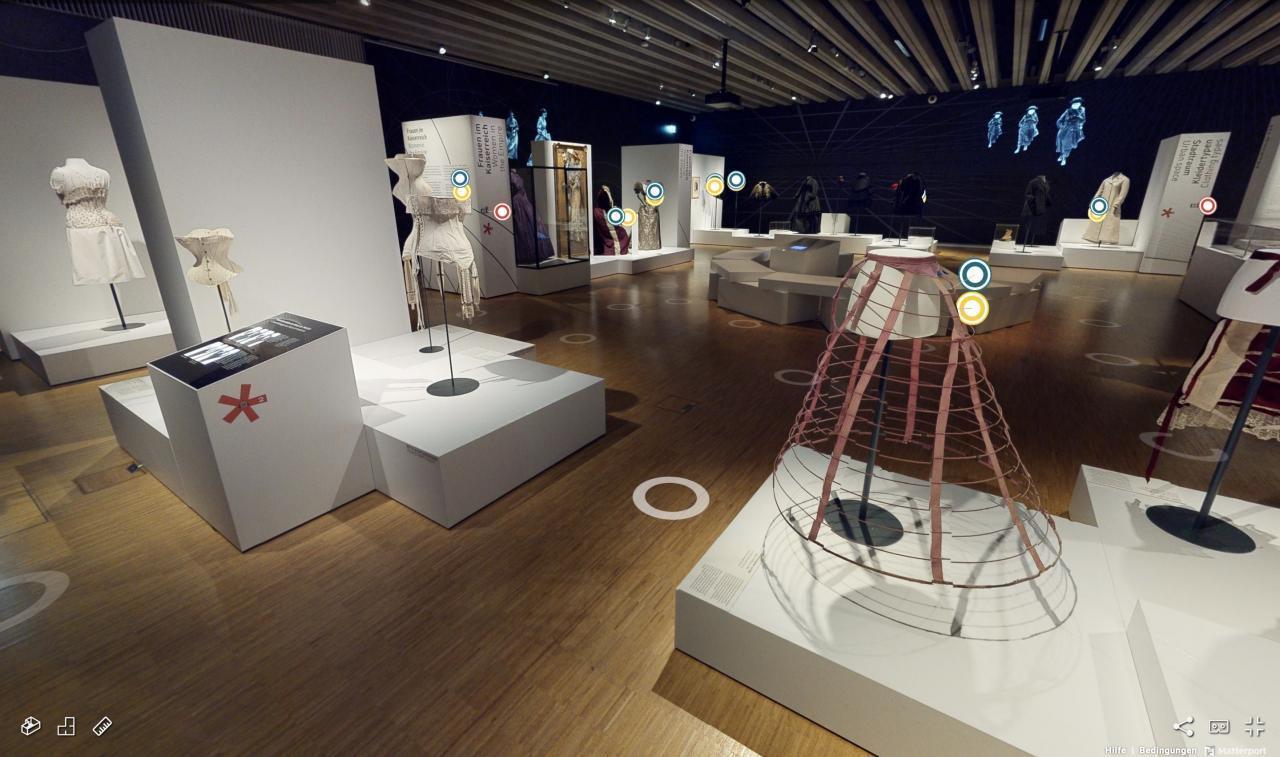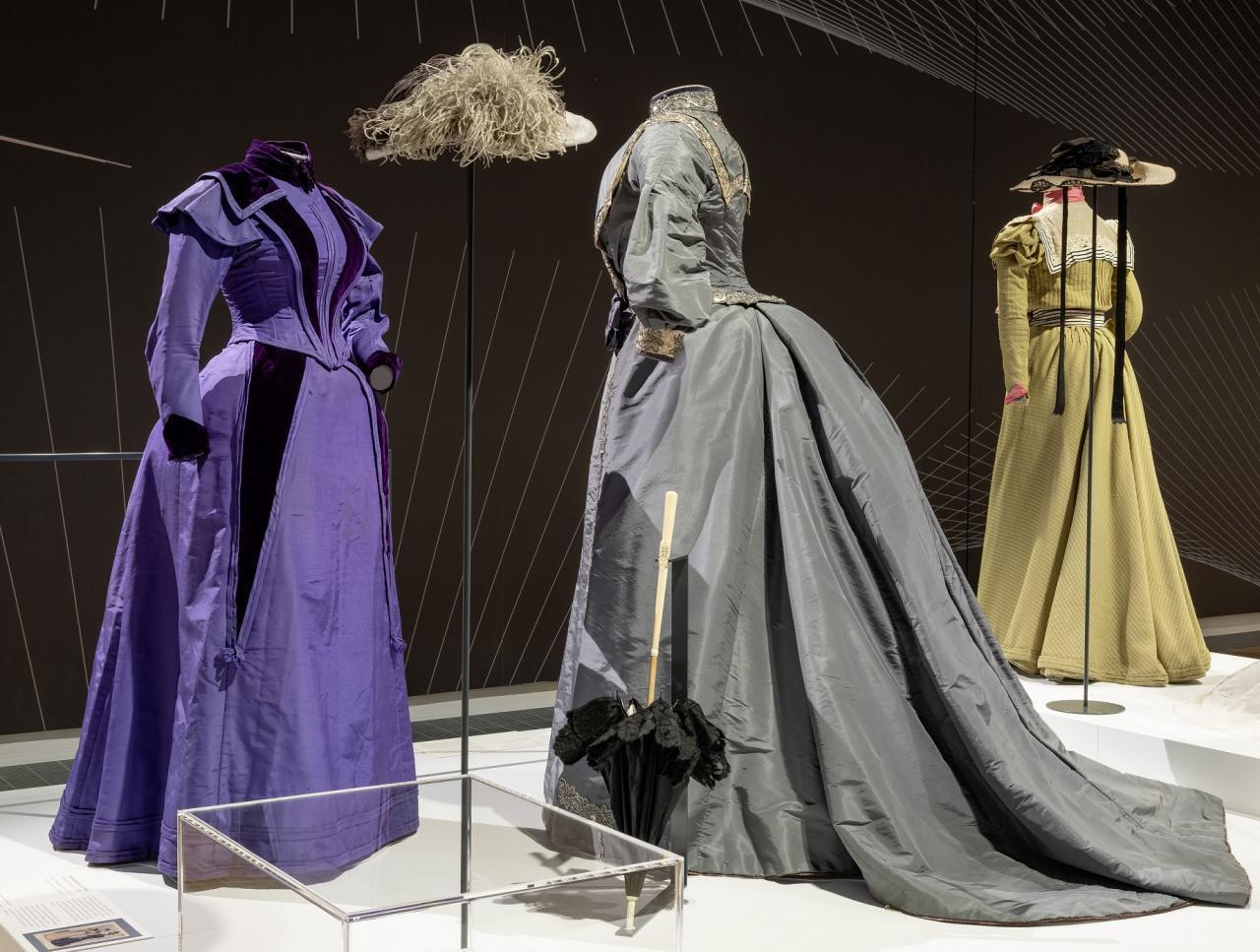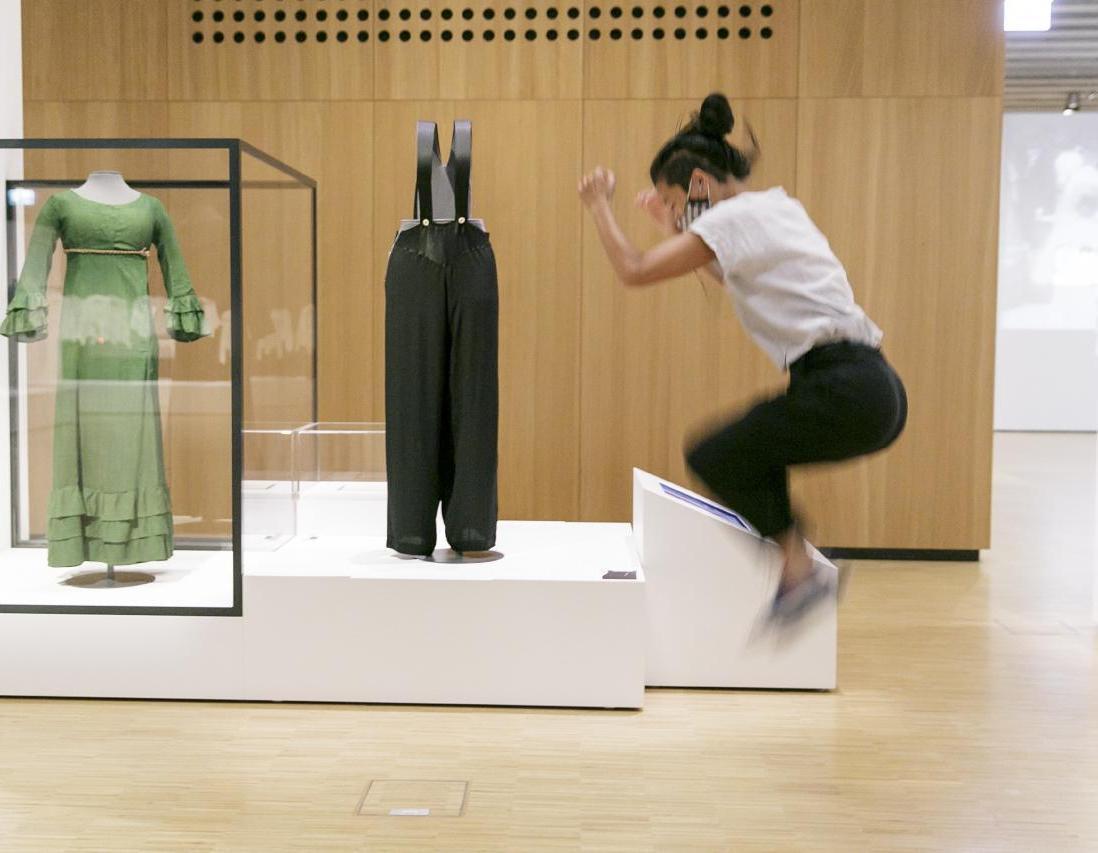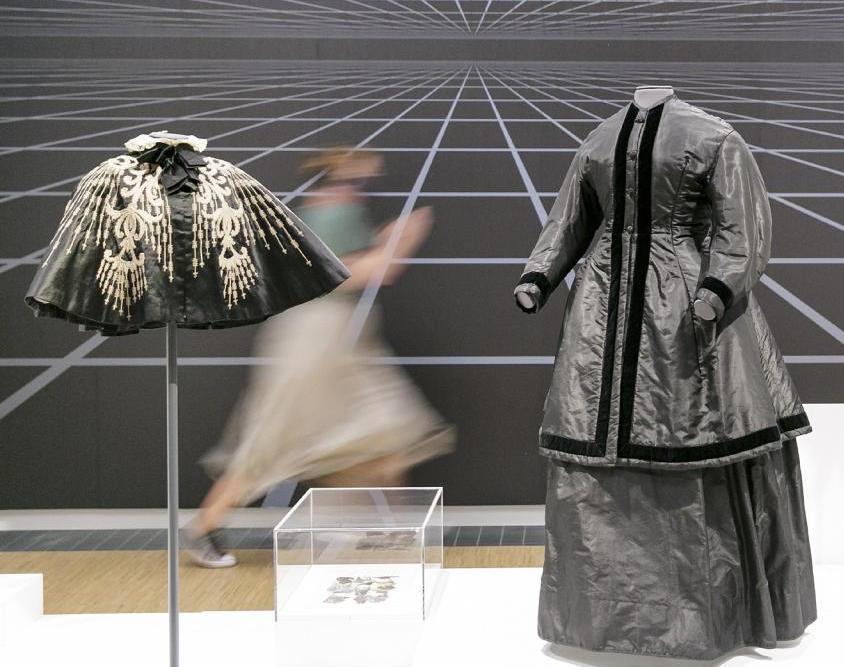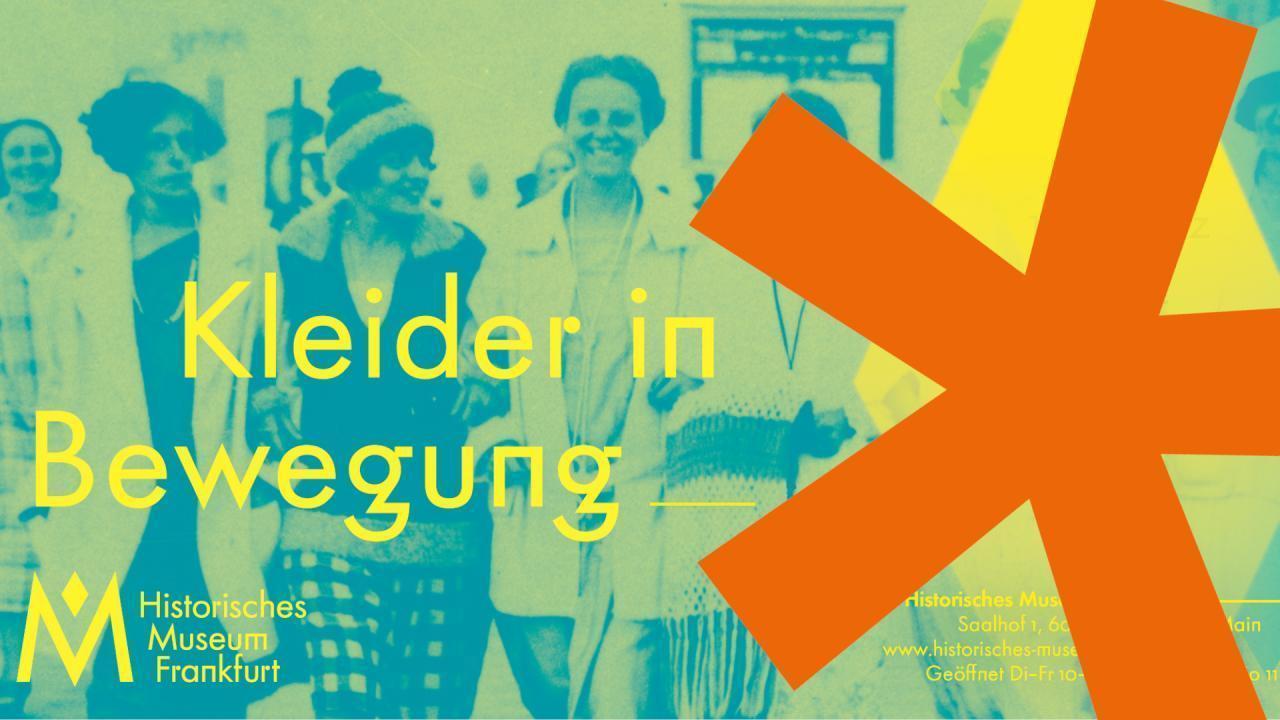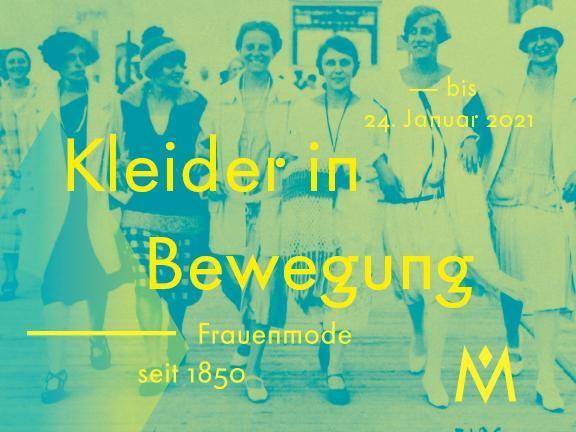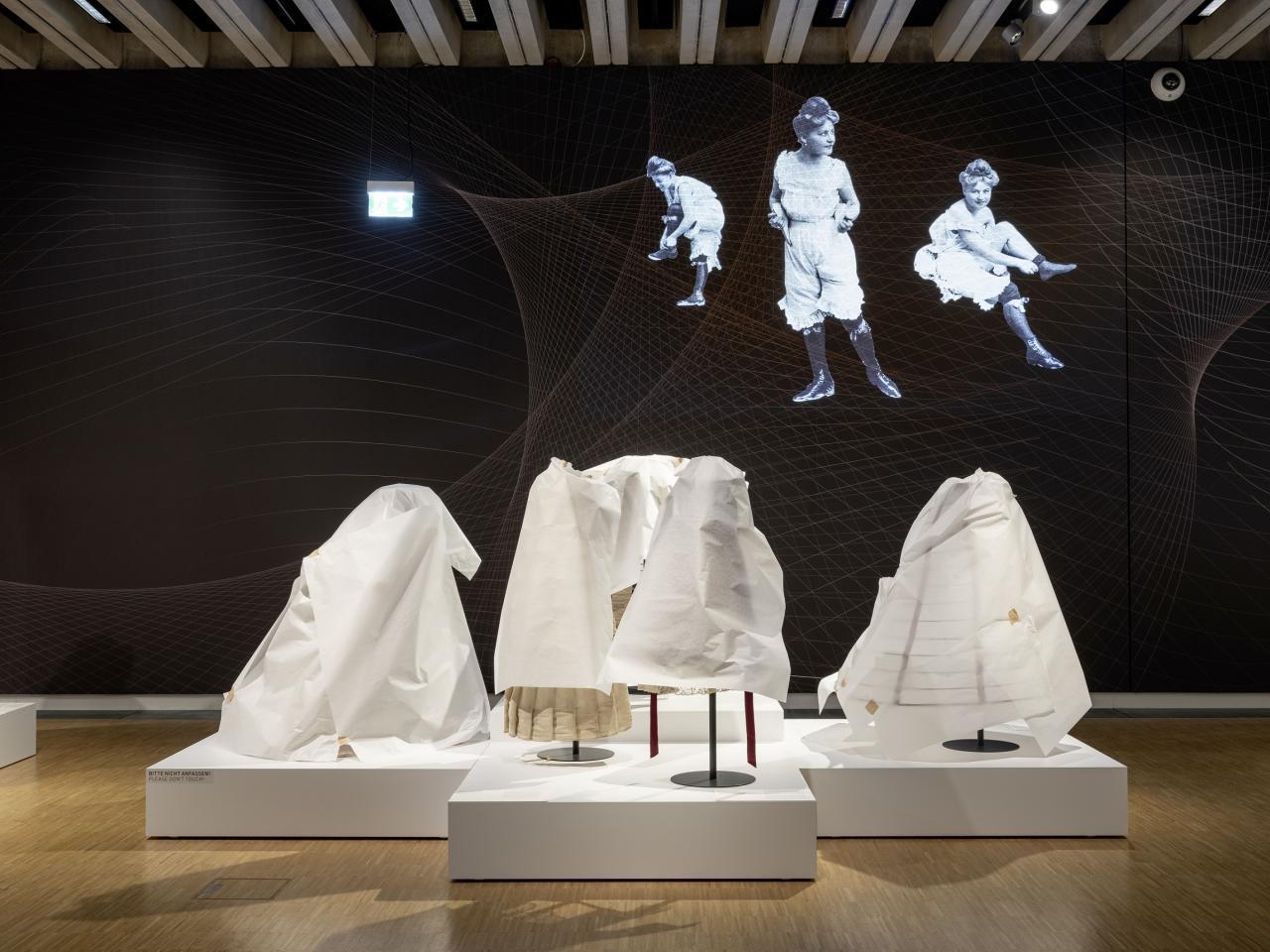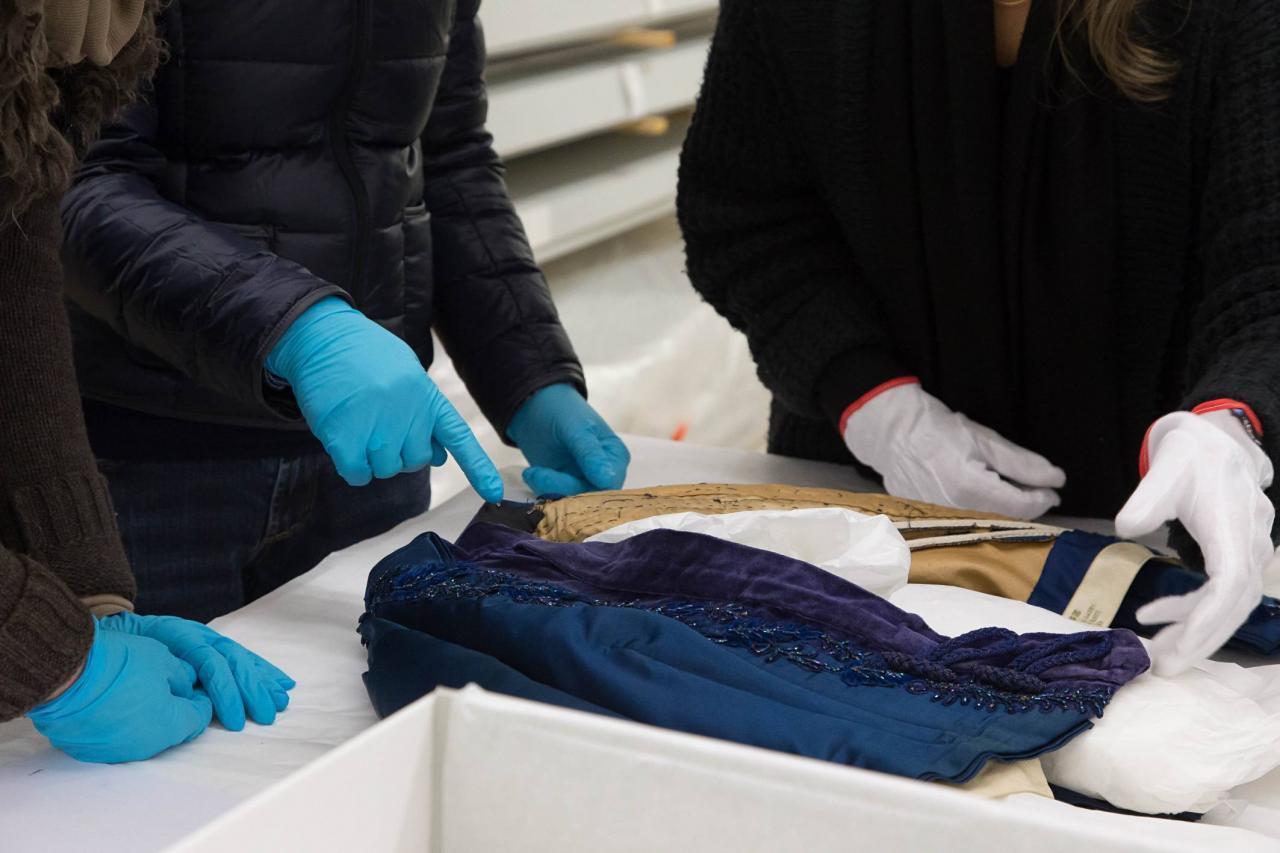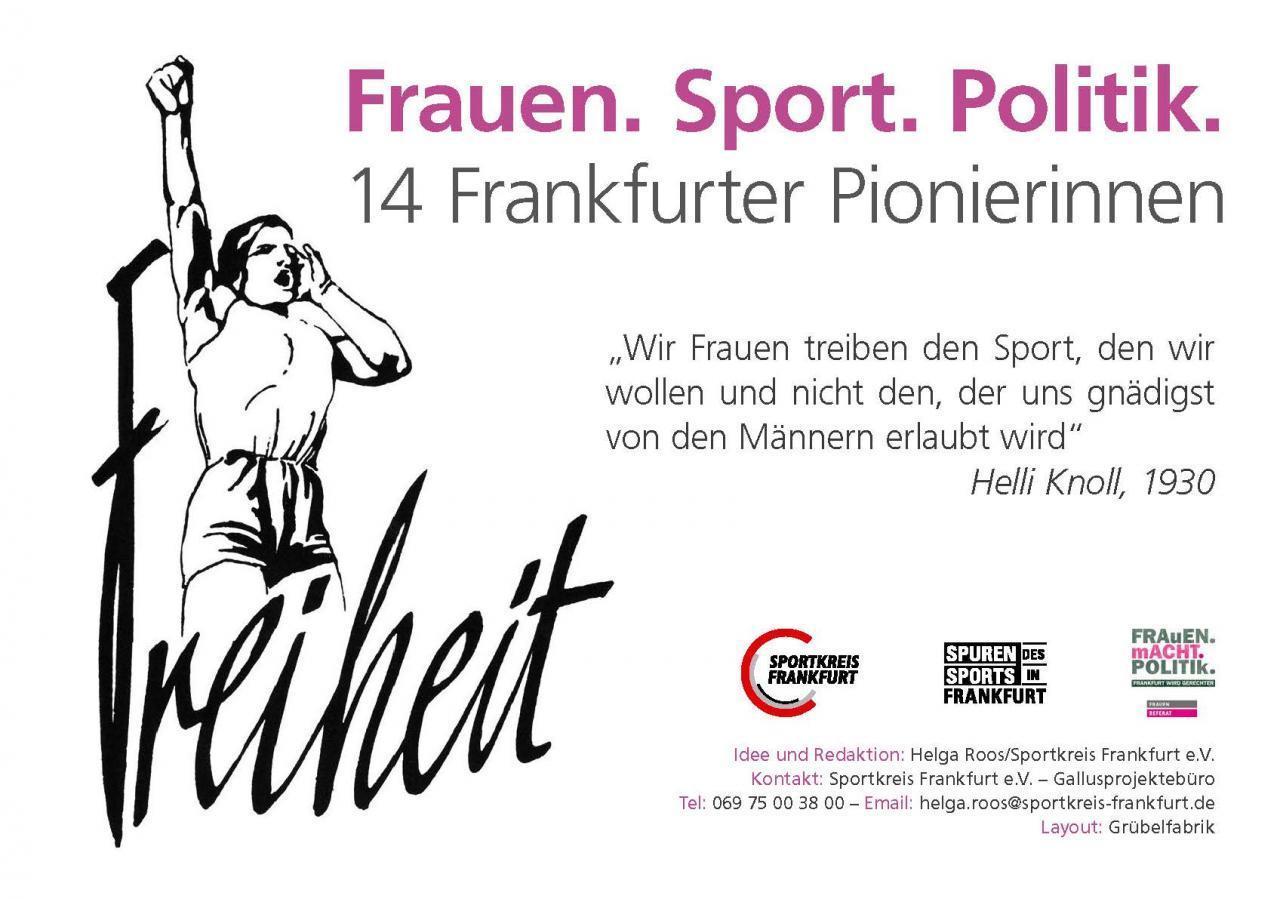Clothing in Motion
5 May 2020 to 24 January 2021
The exhibition will cover a broad spectrum from the nature of the clothing itself to inherent aspects of movement and mobility as well as the changes and adaptations in both between 1850 and the early 1930s – a period of upheaval decisive for conceptions of gender. One focus will thus be on the great centennial decades of the Bauhaus and the Weimar Republic. The rooms will introduce various areas of life and the everyday world (household, work, sports, free time and politics) in which women attained movement or began to have an impact despite the confinements posed by their clothing.
The exhibition will feature some 200 objects primarily from the museum’s own textile and fashion collection, supplemented with choice international loans (textiles, paintings, prints and photographs). More than 50 complete outfits and numerous individual articles of clothing – from the middle-class formal dress and the corset to reform and work garments, the bathing suit, the first women’s trousers and evening wear – will be shown in moments of motion. The history of fashion, art and movement, both regional and international, will be staged in sophisticated scenographic settings in a show that will also make reference to current discussions and media and pose questions as to how clothing allows and restricts movement today.
Clothing has always been more than just protection. It is, and has always been, linked to the striving for conformity and individualization, identification and identity. It follows norms and ideals of beauty as well as taboos. It expresses the need for social status and individuality while also taking gender roles into account. Clothing and its use in physical movement accordingly reveal a lot about societal change and women’s (and men’s) freedom to manoeuvre. With the aid of clothing but also film – a medium that emerged in the late nineteenth century –, the exhibition will shed light on the wealth of meaning associated with clothing.
The show will also transcend the historical timeline to take a look at the present. Where do we stand today? Do we look back on a linear development or can we detect breaks, contradictions and regressions? The framework programme will accompany the exhibition with various events such as a fashion show, films and actions such as “What is your most uncomfortable piece of clothing?”
Sponsors
Kulturfonds Frankfurt RheinMain
VolkswagenStiftung
Ernst Max von Grunelius-Stiftung
STIFTUNG GIERSCH
Frauenreferat der Stadt Frankfurt
Georg und Franziska Speyer'sche Hochschulstiftung
Stabsstelle Frauenpolitik im Hessischen Ministerium für Soziales und Integration
FAZIT-STIFTUNG
Stiftung Frauen in Europa/TuWas Stiftung für Gemeinsinn
Freunde & Förderer
In cooperation with
Lehrstuhl für Kulturwissenschaft der Mode und des Textilen der Universität Paderborn, Forschungsprojekt „Kleidung in Bewegung versetzen. Eine objektbasierte Untersuchung von Kleidung zur textilen Rekonstruktion von Bewegung“, gefördert v. d. VolkswagenStiftung
Frankfurter Schule für Mode und Bekleidung
Kinothek Asta Nielsen e.V.
Frauenreferat der Stadt Frankfurt
Sportkreis Frankfurt e.V.
KulturRegion FrankfurtRheinMain
General management
Jan Gerchow (director HMF)
Idea and concept
Maren Ch. Härtel, HMF
Kerstin Kraft, Universität Paderborn
Regina Lösel, Universität Paderborn
Curator and project management
Maren Ch. Härtel, HMF
Co-curator, project control
Dorothee Linnemann
Co-curators, research projekt
Kerstin Kraft, Universität Paderborn
Regina Lösel, Universität Paderborn
HMF exhibition office
Curators: Maren Christine Härtel und Dorothee Linnemann
Contact: maren-christine.haertel(at)stadt-frankfurt.de and dorothee.linnemann(at)stadt-frankfurt.de
Press and public relations
Karin Berrío and David Barth
Contact: karin.berrio(at)stadt-frankfurt.de and david.barth(at)stadt-frankfurt.de

